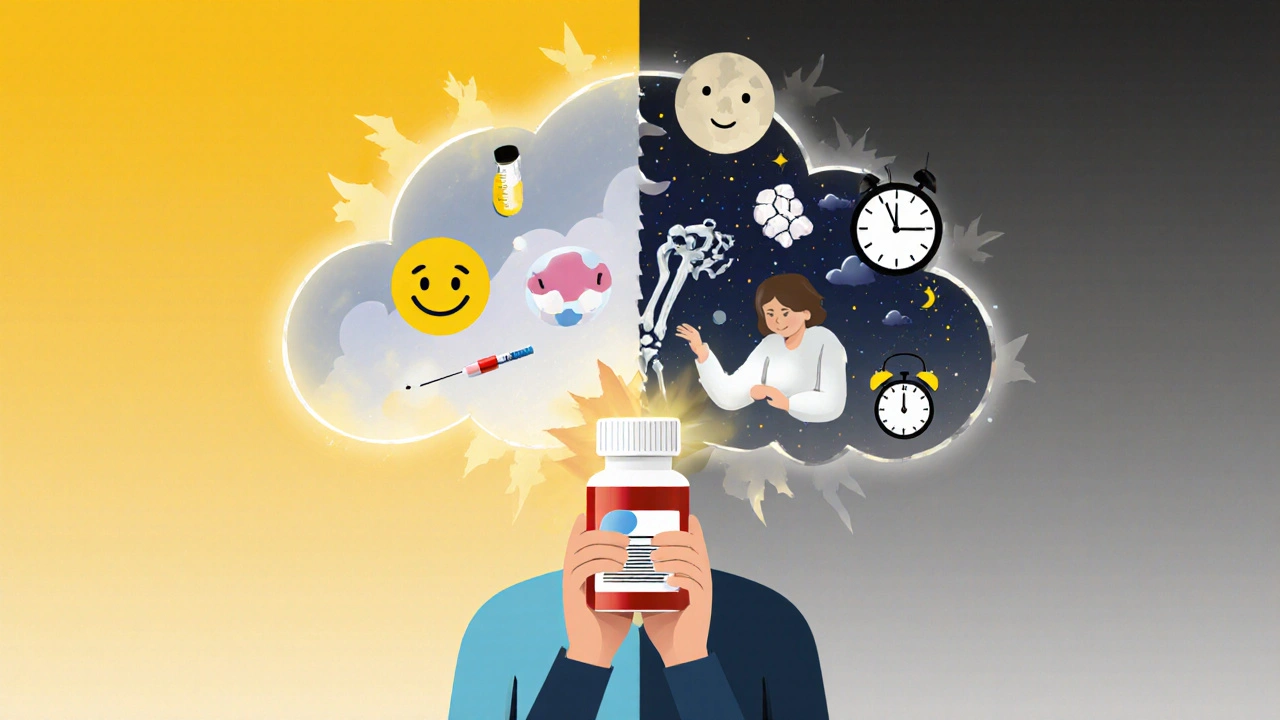Prednisone Side Effects: What You Need to Know Before Taking It
When you take prednisone, a synthetic corticosteroid used to reduce inflammation and suppress the immune system. Also known as a steroid medication, it works fast—but it doesn’t come without trade-offs. Many people get relief from arthritis, asthma, or autoimmune conditions, but the side effects can be just as noticeable as the benefits. You’re not alone if you’ve felt confused or worried after starting it. Prednisone isn’t like a regular pill. It changes how your body works, and those changes don’t always go away when you stop.
The most common prednisone side effects, include weight gain, mood swings, trouble sleeping, and increased appetite. These aren’t rare—they happen to most people on longer courses. But there are deeper risks too. Long-term use can weaken your bones, raise blood sugar, and make you more likely to get infections because it suppresses the immune system, the body’s natural defense against viruses and bacteria. That’s why doctors don’t hand it out like candy. And if you stop too fast, you could crash into steroid withdrawal, a dangerous drop in cortisol levels that causes fatigue, nausea, and even shock.
Some side effects show up slowly. You might not notice your face getting rounder, or your skin thinning until someone points it out. Others hit hard and fast—like sudden anxiety, blurred vision, or swelling in your legs. The key isn’t just knowing the list. It’s knowing what’s normal and what’s a red flag. If you’re on prednisone for more than a few weeks, your doctor should be checking your blood pressure, blood sugar, and bone density. Skipping those visits isn’t just careless—it’s risky.
What you’ll find below isn’t a textbook. It’s real talk from people who’ve been there. Posts cover how to handle the mood swings, why you can’t just quit cold turkey, what to eat when your appetite goes wild, and how to spot early signs of trouble before it becomes an emergency. You’ll also see how prednisone interacts with other meds, why some people get lucky and others don’t, and what to ask your pharmacist when the instructions feel vague. This isn’t about scaring you. It’s about giving you the facts so you can take control—without guessing.
Prednisone and prednisolone reduce inflammation quickly but carry serious short-term and long-term side effects. Learn what to expect, how to reduce risks, and when to ask for help.

